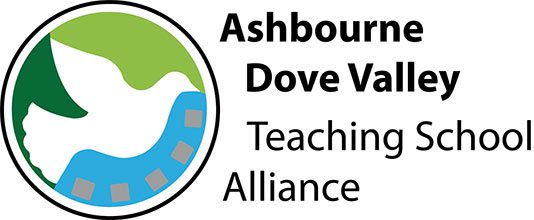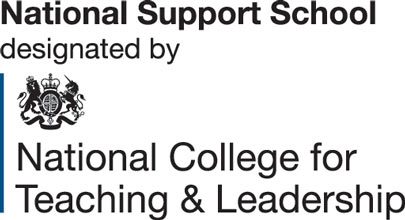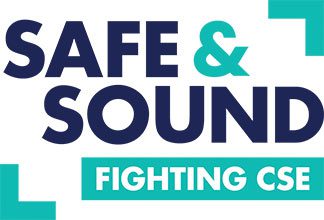Spiritual, Moral, Social and Cultural Development
Queen Elizabeth’s Grammar School recognises that the spiritual, moral, social and cultural (SMSC) element of students’ education is crucial to their development as an individual, allowing them to take their rightful place in their community as a local, national and global citizen. SMSC is about the values students are encouraged to hold, their attitude towards learning, knowledge and society. SMSC is fundamental in preparing young people for society and at QEGS students are helped to develop positive attitudes and beliefs by being given opportunities to:
- Develop spiritual values and reasoned personal and moral values.
- Consider the pluralistic nature of society; developing their understanding and respect for those with different religions, beliefs and ways of life.
- Value everyone equally.
- Create and develop personal relationships, based on trust, self-esteem and mutual respect.
- Become active, responsible citizens in a democratic society.
- Develop an appreciation of human achievements and aspirations.
- Develop an understanding of the world in which they live and the interdependence of individuals, groups, nations and the environment.
At QEGS SMSC permeates the life and work of the school. Through SMSC we seek to develop attitudes and values that will enable students to become responsible and caring members of society. We give students the opportunity for spiritual reflection and encourage them to explore the fundamental questions of life including their own personal existence, journey and purpose. We provide students with a curriculum that will enable them to develop a knowledge and understanding of diverse cultures, particularly those within their own society. We seek to foster an attitude of tolerance and value towards those from a culture and background different from their own. Students are encouraged to develop an understanding of the world, society and the community and accept responsibility as a citizen as well as the capacity to tackle moral and spiritual dilemmas and to try to reach independent judgements, which reflect universal human principles. Through perception and sensitivity, tolerance and respect for others as individuals and in groups we would also expect students to develop questioning, enquiring minds and learn how to express their ideas appropriately.
Spiritual development is concerned with how a student develops:
- Personal values and beliefs.
- A willingness to reflect.
- An ability to communicate these beliefs in discussion and behaviour.
- An understanding of the role of faith and religion in societies.
- Tolerance of other people.
Spiritual development is personal and unique to each individual. It is about the meaning in life, truth and ultimate values. It includes imagination, inspiration and creativity. It also includes an awareness of self-identity and self-worth.
Moral development is concerned with students’ knowledge, understanding, intentions, attitudes and behaviour in relation to right and wrong within the accepted codes and practices of society. Their knowledge and awareness of values and attitudes, codes of behaviour and standards, of individuals and society at a local, national and globally accepted level is important at Queen Elizabeth’s Grammar School. The quality of the relationships students experience, the standards of behaviour in the school, and the values promoted form the basis of their moral judgements as well as the extent to which students show:
- An understanding of the difference between right and wrong.
- Respect for people, truth and property.
- A concern for how their actions might affect others.
- The ability to make responsible judgements on moral issues.
- Personal conduct [students take responsibility for their own moral actions].
- Personal behaviour [good behaviour out of moral responsibility rather than fear of repercussions].
- A knowledge of standards of morality.
Social development is concerned with the skills and personal qualities necessary for individuals to live and function effectively in society. Social development is based on the acceptance of group rules and the ability to see oneself in a wider context. The quality of relationships in Queen Elizabeth’s Grammar School is crucial in forming students’ attitudes to good social behaviour and self-discipline. The school helps prepare students to live in society by providing knowledge and understanding of society, its institutions, structures, and characteristics, political, non-political and economic organisations. The school systematically plans for social development of students through a range of teaching and learning activities including:
- Classroom organisation and management.
- Student organisation and opportunities for group work.
- The school code of conduct.
- Student voice and school council.
- School productions.
- Residential trips.
- Social trips.
- The Wellbeing Personal Development and Tutorial Programme.
- School-industry links [including work-related learning].
- School-community [local and national] links.
- Extra-curricular activities.
- Foreign exchange programmes.
- Student leadership opportunities.
A students’ cultural development refers to an increasing understanding of those values, beliefs, customs, knowledge and skills which link particular groups together and provide people with a sense of identity. At Queen Elizabeth’s Grammar School we seek to develop an understanding and awareness of the students’ shared and unique cultures within the context of our local, national and global multi-cultural societies. We therefore also encourage students’ personal values and self-esteem within this context. Our curriculum provides experiences of all dominant areas of culture for our students, including languages, aesthetic, mathematical, literacy, technological, scientific, musical, political, economic and religious education. The Modern Languages Department has a particular role in developing students’ understanding of cultural diversity but this is a role shared across our curriculum and wider opportunities. There are also opportunities for cultural enrichment including:
- Creative and performing arts for all students.
- Exchanges.
- Cultural visits.
- Extra-curricular activities.
Queen Elizabeth’s Grammar School approaches the promotion of fundamental British values in line with the Government’s PREVENT theme of the anti-terrorist strategy CONTEST. These British Values are: democracy; individual liberty; the rule of law; mutual respect; tolerance of those with different faiths and belief. Each is defined below and placed in a school context through the use of examples. It is, without question, everyone’s duty to ensure they do not undermine these fundamental British values as detailed in the current Teacher Standards Part Two: Personal and Professional Conduct.












